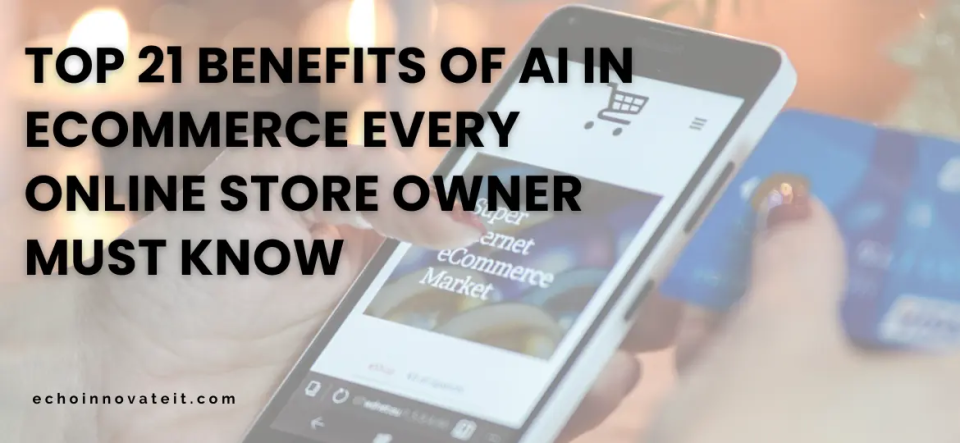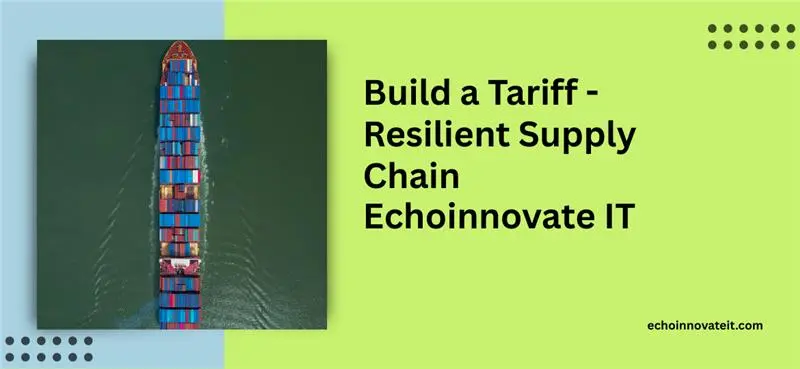Ever felt like your business data is scattered across different systems, making it impossible to get a clear picture? You’re not alone. In today’s fast-paced business landscape, many organizations struggle with fragmented information, leading to inefficiencies, missed opportunities, and frustrating decision-making. Imagine trying to piece together a puzzle when all the pieces are in different boxes – that’s often the reality when crucial data about customers, inventory, finances, and operations reside in isolated silos.
You’ve likely heard the terms ERP and CRM thrown around, but understanding their distinct roles and how they can resolve this data chaos is paramount. These powerful tools, Enterprise Resource Planning (ERP) and Customer Relationship Management (CRM), are designed to streamline operations and enhance customer relationships, respectively. This article aims to demystify the differences between ERP and CRM, providing a clear roadmap to help you determine which system, or combination of systems, is the right fit for your unique business needs, ultimately leading to a more cohesive and efficient operation.
What is ERP
You’ve likely heard of ERP and CRM, but what do they actually do? Simply put, ERP, or Enterprise Resource Planning, is the backbone of your business operations. It’s a comprehensive software suite that integrates and automates core processes like finance, supply chain management, manufacturing, and human resources. Think of it as the central nervous system of your company, ensuring that all departments are working in harmony and that data flows seamlessly.
Key Features of a Robust ERP System
A well-structured ERP system typically encompasses several critical modules, each addressing a specific area of your business:
- Financial Management (Accounting, Budgeting):
This module handles all your financial transactions, including general ledger, accounts payable/receivable, budgeting, and financial reporting. It provides real-time insights into your financial health, helping you make informed decisions.
- Supply Chain Management (Inventory, Procurement, Logistics):
From sourcing raw materials to delivering finished products, this module streamlines your supply chain. It manages inventory levels, automates procurement processes, and optimizes logistics, ensuring efficient product flow.
- Manufacturing (Production Planning, Scheduling):
For manufacturing companies, this module is crucial. It enables production planning, scheduling, and quality control, ensuring efficient and timely production.
- Human Resources (Payroll, Benefits):
This module simplifies HR processes, including payroll, benefits administration, employee data management, and recruitment. It helps you manage your workforce effectively and stay compliant with regulations.
- Project Management:
This module helps with planning, executing, and tracking projects.
It enables effective resource allocation, task management, and progress monitoring, ensuring projects are completed on time and within budget.
What is CRM
On the other hand, CRM, or Customer Relationship Management, is all about your customers. It’s a system designed to manage and enhance interactions with current and potential clients. CRM focuses on building strong relationships, improving customer satisfaction, and driving sales through effective marketing, sales, and customer service strategies. It’s the tool that helps you understand your customers better, personalize their experiences, and ultimately, foster loyalty.
These two powerful tools are essential for modern businesses, but they serve distinct purposes. While ERP optimizes internal efficiency and resource management, CRM focuses on external relationships and customer-centric growth. Understanding this fundamental difference is the first step towards leveraging these systems to their full potential.
Key Features of a Powerful CRM System
A robust CRM system typically offers a range of features to support your customer-focused efforts:
Contact Management:
This feature provides a centralized database for storing and managing customer information, including contact details, interaction history, and preferences. It ensures you have a complete view of each customer.
- Sales Tracking and Forecasting:
CRM helps you track sales opportunities, manage pipelines, and forecast revenue. It provides valuable insights into your sales performance, enabling you to optimize your sales strategies.
- Marketing Automation:
This feature automates marketing tasks, such as email campaigns, social media posts, and lead nurturing. It helps you reach the right customers with the right message at the right time.
- Customer Service and Support:
CRM enables you to manage customer support tickets, track issues, and provide timely resolutions. It helps you deliver exceptional customer service and build loyalty.
- Lead Management:
This feature helps you capture, qualify, and nurture leads throughout the sales process. It ensures that no potential customer slips through the cracks.
Key Differences Between ERP and CRM
| Feature | ERP | CRM |
|---|---|---|
| Primary Focus | Internal business processes and operations | External customer relationships and interactions |
| Core Function | Integrates and automates core business functions (finance, supply chain, manufacturing, HR) | Manages and optimizes customer interactions and relationships (sales, marketing, service) |
| Data Emphasis | Operational data (inventory, financials, production, resources) | Customer data (interactions, preferences, purchase history, contact information) |
| User Base | Employees across various departments (finance, operations, HR, manufacturing) | Sales, marketing, and customer service teams |
| Purpose | To improve operational efficiency, streamline processes, and reduce costs | To enhance customer satisfaction, increase sales, and improve customer retention |
| Scope | Broad, covering the entire organization | Focused on customer-facing activities |
| Process Orientation | Process-centric (focus on optimizing workflows) | Relationship-centric (focus on building customer loyalty) |
| Data Flow | Primarily internal, managing the flow of information within the organization | Primarily external, managing the flow of information between the organization and its customers |
| Reporting | Focus on operational and financial reports (e.g., inventory levels, financial statements) | Focus on customer-related reports (e.g., sales forecasts, customer satisfaction surveys) |
| Implementation Complexity | Generally more complex and time-consuming | Generally less complex, depending on the scope and features |
| Example Modules | Financial Management, Supply Chain Management, Manufacturing, HR, Project Management | Sales, Marketing, Customer Service, Contact Management, Lead Management |
| Main Goal | Operational Excellence | Customer Relationship Excellence |
ERP vs CRM: Choosing the Right System(s)
Selecting the right ERP or CRM system, or both, is a critical decision that can significantly impact your business’s success. It’s not a one-size-fits-all scenario. To make an informed choice, consider these key steps:
Assess Your Business Needs and Goals:
- Identify Pain Points: What challenges are you currently facing? Are you struggling with inefficient processes, poor customer relationships, or lack of data visibility?
- Define Objectives: What do you hope to achieve with an ERP or CRM system? Do you want to improve efficiency, increase sales, enhance customer satisfaction, or streamline operations?
- Map Your Processes: Understand your existing workflows and identify areas for improvement. This will help you determine the specific features and functionalities you need.
- Future Growth: Consider your future growth plans. Will the system you choose scale with your business?
- Consider Your Budget and Resources:
- Total Cost of Ownership (TCO): Don’t just focus on the initial purchase price. Factor in implementation costs, training, maintenance, and ongoing support.
- Resource Availability: Do you have the internal resources to implement and manage the system? If not, you may need to consider external consultants or managed services.
- ROI Expectations: Set realistic expectations for the return on investment (ROI). How will you measure the success of your implementation?
- Evaluate Different ERP and CRM Vendors:
- Research and Compare: Explore different vendors and compare their products, features, and pricing.
- Read Reviews and Testimonials: See what other businesses have to say about their experiences with different vendors.
- Industry Expertise: Look for vendors with experience in your specific industry. They will have a better understanding of your unique needs.
- Vendor Stability: Make sure the vendor is financially stable and has a proven track record.
- Look for Systems That Are Scalable and Customizable:
- Scalability: Choose a system that can grow with your business. It should be able to handle increasing data volumes and user loads.
- Customization: Look for systems that can be customized to meet your specific requirements. Avoid rigid systems that force you to change your processes.
- Integration Capabilities: Ensure the system can integrate with your existing software and applications.
- Consider Cloud-Based vs. On-Premise Solutions:
- Cloud-Based (SaaS): Cloud-based systems are hosted by the vendor and accessed over the internet. They offer lower upfront costs, faster implementation, and automatic updates.
- On-Premise: On-premise systems are installed on your own servers. They offer greater control and customization but require significant upfront investment and IT resources.
- Hybrid Solutions: Some vendors offer hybrid solutions that combine the benefits of both cloud-based and on-premise systems.
- Ask for Demos:
- Hands-On Experience: Request demos from multiple vendors to get a hands-on experience with their systems.
- Ask Questions: Don’t hesitate to ask detailed questions about features, functionality, and implementation.
- Involve Key Stakeholders: Include key stakeholders from different departments in the demo process to ensure everyone’s needs are met.
Free Trials: Take advantage of free trials whenever possible. This will allow your team to test the software in a real world environment.
Conclusion
In summary, ERP systems focus on streamlining internal operations, integrating core business processes like finance, supply chain, and manufacturing, while CRM systems are dedicated to enhancing external customer relationships, managing interactions, and boosting sales and marketing efforts. Choosing the right system, or a combination of both, is paramount to your business’s success. It’s not just about adopting technology; it’s about strategically aligning your software with your specific needs and goals.
We strongly encourage you to take action: conduct thorough research, request demos from reputable vendors, and consider consulting with experts to ensure you make an informed decision. Remember, implementing the correct software isn’t just an expense; it’s an investment that can drastically improve your business performance, leading to increased efficiency, enhanced customer satisfaction, and ultimately, significant growth.
FAQs: ERP vs CRM: What’s the Difference?
What is the main difference between ERP and CRM?
ERP (Enterprise Resource Planning) focuses on managing business processes such as finance, supply chain, and operations, whereas CRM (Customer Relationship Management) is designed to improve customer interactions, sales, and marketing efforts. ERP streamlines internal workflows, while CRM enhances customer relationships.
Can ERP and CRM work together?
Yes! ERP and CRM can be integrated to provide a complete business solution. While CRM manages customer interactions and sales pipelines, ERP ensures smooth backend operations like inventory, accounting, and logistics. Integration helps businesses improve efficiency and customer experience.
Which one should my business choose: ERP or CRM?
It depends on your business needs:
- If you want to improve customer relationships, sales, and marketing, go for CRM.
- If you need better financial management, inventory control, and internal processes, ERP is the better choice.
- Many businesses use both ERP & CRM for a well-rounded solution.



